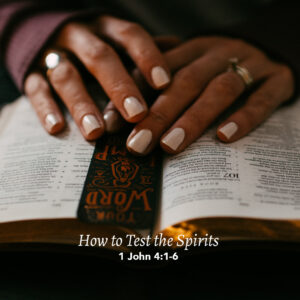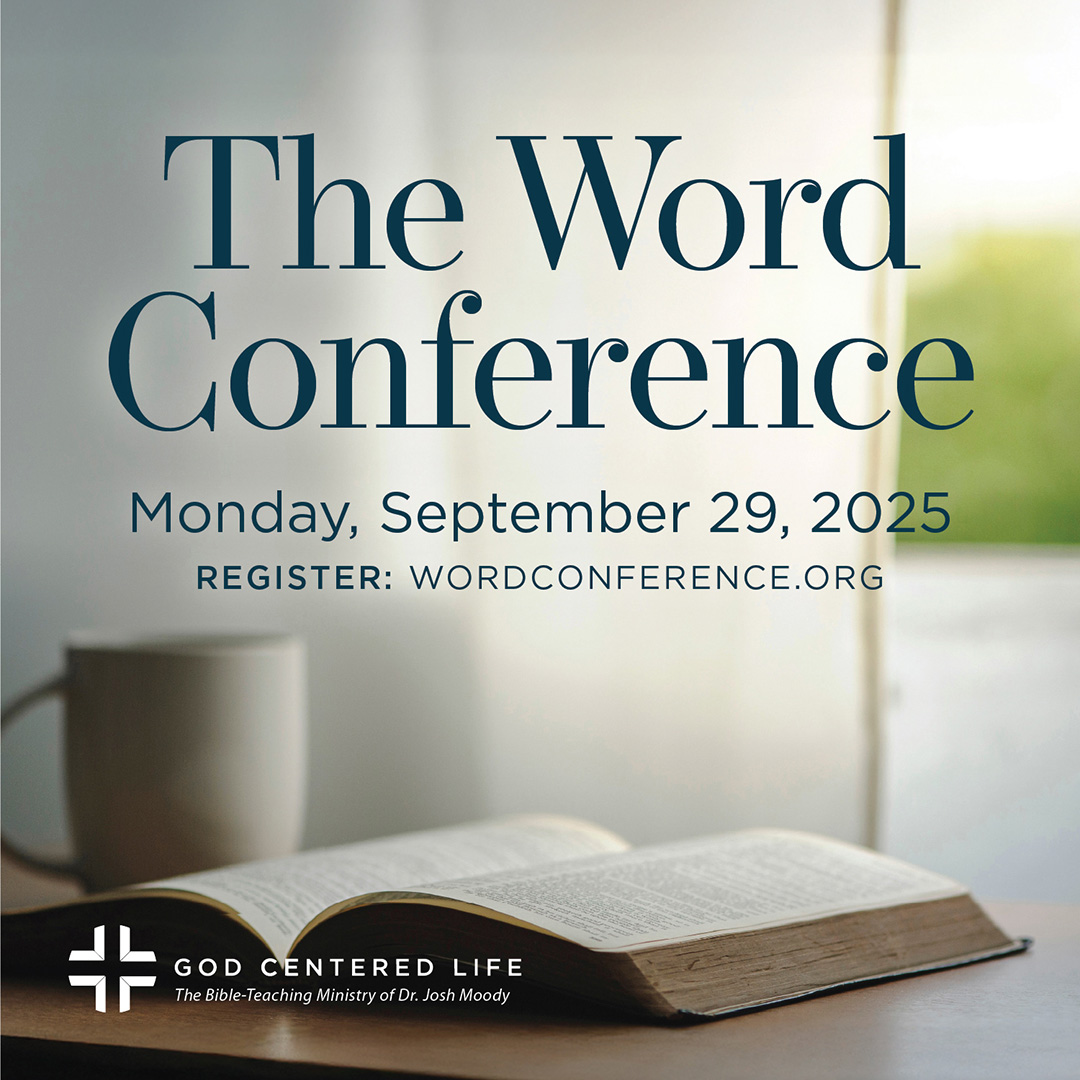1 John 4:1-6: How to Test the Spirits
November 16, 2023
TODAY'S BIBLE READING:
Ezekiel 40-41, Job 15:1-16, John 11:38-44, 1 John 4:1-6

John has been teaching about how we can be sure about relationship with God. In the last section he concluded by saying that one way is through the work of the Spirit in our lives. But, he now continues, not every spirit should we believe. How are we to discern what truly is the work of the Spirit of God and what is counterfeit? John presents us with three principles.
First, test the spirits. How often is this principle neglected! Someone comes along and they sound pious, and what they do looks impressive. Perhaps they are intelligent and rhetorically compelling. Well, now everyone jumps on the bandwagon! This is a wonderful thing, this new idea that is being preached. Surely it is of God! But, hold on, we must test the spirits. Christians are neither to be hyper-critical nor naively gullible. It is wrong to adopt a critical spirit about the style or method of a certain person’s ministry. But it is not wrong to test the spirits. Jesus himself said that we are not to throw our pearls before swine, which at least requires being discerning enough to know what are pearls and what are swine!
Second, apply the doctrinal test. John says, “This is how you can recognize the Spirit of God: Every spirit that acknowledges that Jesus Christ has come in the flesh is from God, but every spirit that does not acknowledge Jesus is not from God.” John is counteracting a teaching sometimes called Docetism, that is that Christ only seemed to be God in the flesh, but was actually not really human in the sense that we would understand it in normal ways. The teaching of Docetism was one component of the early church heresy called Gnosticism – and this passage is one reason why some people think that John was counteracting a form of early or proto-Gnosticism when he was writing this letter. But the point that John is making, and the tool that he is using, has wider application than merely counteracting an ancient heresy. That ancient heresy rears its ugly head around us anew in different clothes. And there are other more recent heresies too. For each “false spirit” or “false teaching,” we may “test the spirits” by applying the doctrinal test. Does this teaching line up with the faith once delivered to the saints? Is this teaching in line with the doctrinal statement of the evangelical church? Is this teaching in accord with the core doctrines that the Bible teaches? Does this teaching affirm the incarnation of Christ? Does it affirm the substitutionary atonement of the cross? Does it affirm the bodily resurrection of Jesus? Does it affirm that we are justified by faith alone? Does it teach the coming return of Jesus? Does it affirm that God is Father, Son and Holy Spirit, one God in three persons? If these, or other similar core doctrines, are denied, then however winsome, however exciting, however powerful or even miraculous the ministry, then we can test the spirit and judge the teaching false and the spirit behind it as not from God.
Third, observe how they treat the Bible. Someone might give lip service to the authority, but how is the Bible actually used in that ministry? Do they accept in practice the authority of the Bible? Is the Bible the functional center of that ministry? This is a critically important test today with many ministries marginalizing the Scriptures in practice. John puts it like this, “We are from God, and whoever knows God listens to us; but whoever is not from God does not listen to us. This is how we recognize the Spirit of truth and the spirit of falsehood.” What John means by “we” here is the “apostolic we.” The apostles, as they teach authoritatively, and we as we read the apostolic teaching and the teaching confirmed by apostolic authority – the Bible – are to listen to what God says in the Bible. Test the spirits by the teaching’s, or the individual’s, or the movement’s attitude to the Bible. Is the Bible central? Do they listen to the Bible? Or is the Bible on the shelf, but not taught from, used, or given rightful place as authoritative?
ABOUT THE AUTHOR
Josh Moody (Ph.D., University of Cambridge) is the senior pastor of College Church in Wheaton, IL., president and founder of God Centered Life Ministries, and author of several books including How the Bible Can Change Your Life and John 1-12 For You.
WANT MORE?
To receive God Centered Life devotionals directly in your inbox, as well as other resources, enter your email address in the form at the bottom of this page and click "subscribe."


